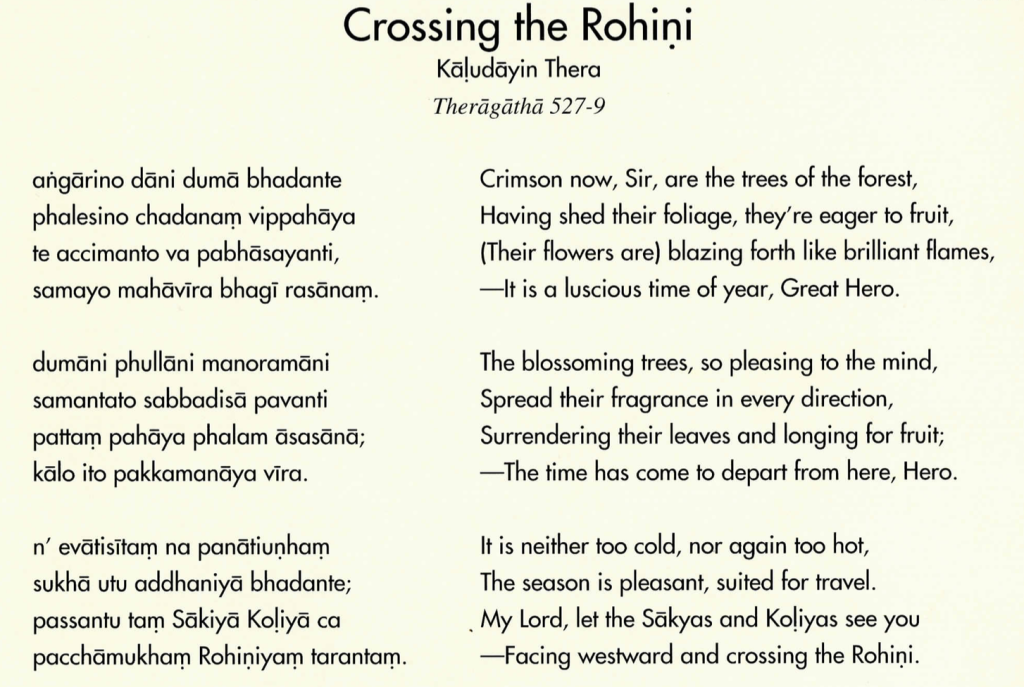These verses are said to have been uttered by Udāyin (nick-named Kāla Udayin or “Dark Udāyin”). He was the son of king Suddhodhana’ chief minister, and is said to have been the childood companion of prince Siddhartha. Soon after Gotama’s awakening, the king sent several messengers to ask his son to return home. Each one, upon hearing the Buddha’s teaching, apparently joined his movement and gave up the king’s mission. Finally Suddhodhana sends Kaludayin, who agrees on condition that he can become a follower of the Buddha upon getting him to return home for a visit.
The Rohini river runs through the heart of the Buddha’s homeland, marking the border between the lands of the Sākyas and the Koḷiyas (his father’s and mother’s families, respectively). Since the verses are uttered in Rajagaha, well to the southeast, a returning journey would face the traveller westward. One commentary says that Kaludayin went on for sixty stanzas of this beautiful nature poetry before asking the Buddha to return, but we only have the first few of these. The language is rich and evocative of spring sights and smells. It is composed in a meter of eleven syllables per line.
The Buddha does indeed go home soon after his awakening, where he picks up a number of family members to join his order. These include his half brother (Nanda), several cousins (Ānanda, Anuruddha, and Devadatta), and his son (Rāhula). Eventually his wife (Yosodharā), step-mother (Mahāpajāpatī) and many other Sākyas will also become nuns and monks.
